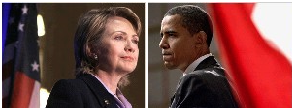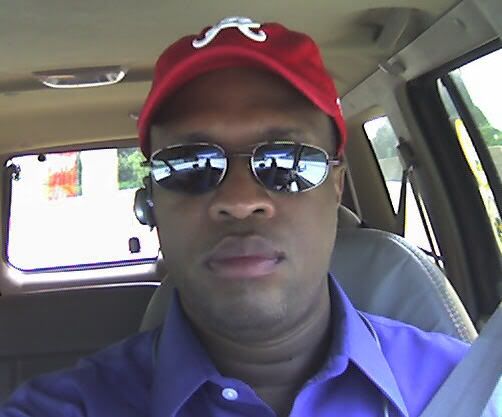Barack Obama for President
Published: October 23, 2008
Hyperbole is the currency of presidential campaigns, but this year the nation’s future truly hangs in the balance.
The United States is battered and drifting after eight years of President Bush’s failed leadership. He is saddling his successor with two wars, a scarred global image and a government systematically stripped of its ability to protect and help its citizens — whether they are fleeing a hurricane’s floodwaters, searching for affordable health care or struggling to hold on to their homes, jobs, savings and pensions in the midst of a financial crisis that was foretold and preventable.
As tough as the times are, the selection of a new president is easy. After nearly two years of a grueling and ugly campaign, Senator Barack Obama of Illinois has proved that he is the right choice to be the 44th president of the United States.
Mr. Obama has met challenge after challenge, growing as a leader and putting real flesh on his early promises of hope and change. He has shown a cool head and sound judgment. We believe he has the will and the ability to forge the broad political consensus that is essential to finding solutions to this nation’s problems.
In the same time, Senator John McCain of Arizona has retreated farther and farther to the fringe of American politics, running a campaign on partisan division, class warfare and even hints of racism. His policies and worldview are mired in the past. His choice of a running mate so evidently unfit for the office was a final act of opportunism and bad judgment that eclipsed the accomplishments of 26 years in Congress.
Given the particularly ugly nature of Mr. McCain’s campaign, the urge to choose on the basis of raw emotion is strong. But there is a greater value in looking closely at the facts of life in America today and at the prescriptions the candidates offer. The differences are profound.
Mr. McCain offers more of the Republican every-man-for-himself ideology, now lying in shards on Wall Street and in Americans’ bank accounts. Mr. Obama has another vision of government’s role and responsibilities.
In his convention speech in Denver, Mr. Obama said, “Government cannot solve all our problems, but what it should do is that which we cannot do for ourselves: protect us from harm and provide every child a decent education; keep our water clean and our toys safe; invest in new schools and new roads and new science and technology.”
Since the financial crisis, he has correctly identified the abject failure of government regulation that has brought the markets to the brink of collapse.
The EconomyThe American financial system is the victim of decades of Republican deregulatory and anti-tax policies. Those ideas have been proved wrong at an unfathomable price, but Mr. McCain — a self-proclaimed “foot soldier in the Reagan revolution” — is still a believer.
Mr. Obama sees that far-reaching reforms will be needed to protect Americans and American business.
Mr. McCain talks about reform a lot, but his vision is pinched. His answer to any economic question is to eliminate pork-barrel spending — about $18 billion in a $3 trillion budget — cut taxes and wait for unfettered markets to solve the problem.
Mr. Obama is clear that the nation’s tax structure must be changed to make it fairer. That means the well-off Americans who have benefited disproportionately from Mr. Bush’s tax cuts will have to pay some more. Working Americans, who have seen their standard of living fall and their children’s options narrow, will benefit. Mr. Obama wants to raise the minimum wage and tie it to inflation, restore a climate in which workers are able to organize unions if they wish and expand educational opportunities.
Mr. McCain, who once opposed President Bush’s tax cuts for the wealthy as fiscally irresponsible, now wants to make them permanent. And while he talks about keeping taxes low for everyone, his proposed cuts would overwhelmingly benefit the top 1 percent of Americans while digging the country into a deeper fiscal hole.
National SecurityThe American military — its people and equipment — is dangerously overstretched. Mr. Bush has neglected the necessary war in Afghanistan, which now threatens to spiral into defeat. The unnecessary and staggeringly costly war in Iraq must be ended as quickly and responsibly as possible.
While Iraq’s leaders insist on a swift drawdown of American troops and a deadline for the end of the occupation, Mr. McCain is still taking about some ill-defined “victory.” As a result, he has offered no real plan for extracting American troops and limiting any further damage to Iraq and its neighbors.
Mr. Obama was an early and thoughtful opponent of the war in Iraq, and he has presented a military and diplomatic plan for withdrawing American forces. Mr. Obama also has correctly warned that until the Pentagon starts pulling troops out of Iraq, there will not be enough troops to defeat the Taliban and Al Qaeda in Afghanistan.
Mr. McCain, like Mr. Bush, has only belatedly focused on Afghanistan’s dangerous unraveling and the threat that neighboring Pakistan may quickly follow.
Mr. Obama would have a learning curve on foreign affairs, but he has already showed sounder judgment than his opponent on these critical issues. His choice of Senator Joseph Biden — who has deep foreign-policy expertise — as his running mate is another sign of that sound judgment. Mr. McCain’s long interest in foreign policy and the many dangers this country now faces make his choice of Gov. Sarah Palin of Alaska more irresponsible.
Both presidential candidates talk about strengthening alliances in Europe and Asia, including NATO, and strongly support Israel. Both candidates talk about repairing America’s image in the world. But it seems clear to us that Mr. Obama is far more likely to do that — and not just because the first black president would present a new American face to the world.
Mr. Obama wants to reform the United Nations, while Mr. McCain wants to create a new entity, the League of Democracies — a move that would incite even fiercer anti-American furies around the world.
Unfortunately, Mr. McCain, like Mr. Bush, sees the world as divided into friends (like Georgia) and adversaries (like Russia). He proposed kicking Russia out of the Group of 8 industrialized nations even before the invasion of Georgia. We have no sympathy for Moscow’s bullying, but we also have no desire to replay the cold war. The United States must find a way to constrain the Russians’ worst impulses, while preserving the ability to work with them on arms control and other vital initiatives.
Both candidates talk tough on terrorism, and neither has ruled out military action to end Iran’s nuclear weapons program. But Mr. Obama has called for a serious effort to try to wean Tehran from its nuclear ambitions with more credible diplomatic overtures and tougher sanctions. Mr. McCain’s willingness to joke about bombing Iran was frightening.
The Constitution and the Rule of LawUnder Mr. Bush and Vice President Dick Cheney, the Constitution, the Bill of Rights, the justice system and the separation of powers have come under relentless attack. Mr. Bush chose to exploit the tragedy of Sept. 11, 2001, the moment in which he looked like the president of a unified nation, to try to place himself above the law.
Mr. Bush has arrogated the power to imprison men without charges and browbeat Congress into granting an unfettered authority to spy on Americans. He has created untold numbers of “black” programs, including secret prisons and outsourced torture. The president has issued hundreds, if not thousands, of secret orders. We fear it will take years of forensic research to discover how many basic rights have been violated.
Both candidates have renounced torture and are committed to closing the prison camp in Guantánamo Bay, Cuba.
But Mr. Obama has gone beyond that, promising to identify and correct Mr. Bush’s attacks on the democratic system. Mr. McCain has been silent on the subject.
Mr. McCain improved protections for detainees. But then he helped the White House push through the appalling Military Commissions Act of 2006, which denied detainees the right to a hearing in a real court and put Washington in conflict with the Geneva Conventions, greatly increasing the risk to American troops.
The next president will have the chance to appoint one or more justices to a Supreme Court that is on the brink of being dominated by a radical right wing. Mr. Obama may appoint less liberal judges than some of his followers might like, but Mr. McCain is certain to pick rigid ideologues. He has said he would never appoint a judge who believes in women’s reproductive rights.
The Candidates It will be an enormous challenge just to get the nation back to where it was before Mr. Bush, to begin to mend its image in the world and to restore its self-confidence and its self-respect. Doing all of that, and leading America forward, will require strength of will, character and intellect, sober judgment and a cool, steady hand.
Mr. Obama has those qualities in abundance. Watching him being tested in the campaign has long since erased the reservations that led us to endorse Senator Hillary Rodham Clinton in the Democratic primaries. He has drawn in legions of new voters with powerful messages of hope and possibility and calls for shared sacrifice and social responsibility.
Mr. McCain, whom we chose as the best Republican nominee in the primaries, has spent the last coins of his reputation for principle and sound judgment to placate the limitless demands and narrow vision of the far-right wing. His righteous fury at being driven out of the 2000 primaries on a racist tide aimed at his adopted daughter has been replaced by a zealous embrace of those same win-at-all-costs tactics and tacticians.
He surrendered his standing as an independent thinker in his rush to embrace Mr. Bush’s misbegotten tax policies and to abandon his leadership position on climate change and immigration reform.
Mr. McCain could have seized the high ground on energy and the environment. Earlier in his career, he offered the first plausible bill to control America’s emissions of greenhouse gases. Now his positions are a caricature of that record: think Ms. Palin leading chants of “drill, baby, drill.”
Mr. Obama has endorsed some offshore drilling, but as part of a comprehensive strategy including big investments in new, clean technologies.
~ ~ ~ ~ ~ ~
Mr. Obama has withstood some of the toughest campaign attacks ever mounted against a candidate. He’s been called un-American and accused of hiding a secret Islamic faith. The Republicans have linked him to domestic terrorists and questioned his wife’s love of her country. Ms. Palin has also questioned millions of Americans’ patriotism, calling Republican-leaning states “pro-America.”
This politics of fear, division and character assassination helped Mr. Bush drive Mr. McCain from the 2000 Republican primaries and defeat Senator John Kerry in 2004. It has been the dominant theme of his failed presidency.
The nation’s problems are simply too grave to be reduced to slashing “robo-calls” and negative ads. This country needs sensible leadership, compassionate leadership, honest leadership and strong leadership. Barack Obama has shown that he has all of those qualities.
















